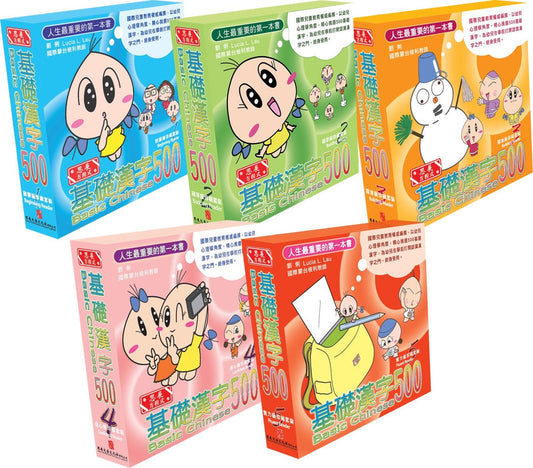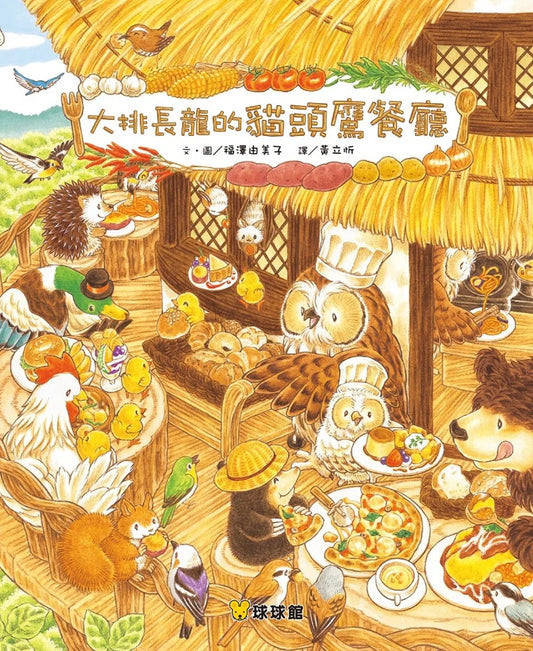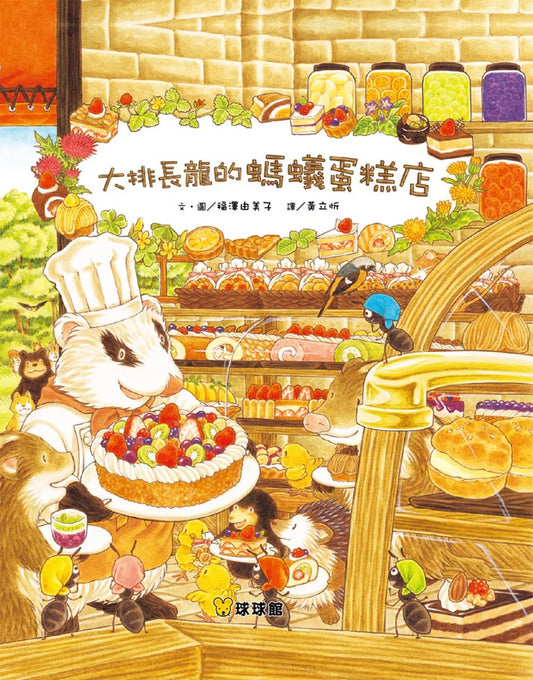Our Parent Spotlight this month will feature V!
V is a mom of 2 in a trilingual household. She started focusing on “teaching” her kids Chinese when they were ages 7 and 11. We love her analogy of following the Chinese journey like a GPS - recalculating whenever needed. Because really - life happens and new things come up all the time. Let’s learn about how she navigates these challenges!
Meet V!
Hi V! Thanks for doing this interview with us. Can you tell us a bit about yourself and your family?
We are a trilingual family speaking English, French, and Cantonese. My two kids are currently 13 and 9 and they are in French immersion. My husband is fluent in French and speaks French to the kids. I'm fluent in Cantonese so I speak Cantonese to them. My husband and I speak English to each other.

That’s so neat! What made you decide to incorporate all these languages at home?
I never really thought about “teaching” them Chinese.
Both my husband and I have families who don’t speak English, so we just want our kids to be able to understand and speak the other languages and be able to communicate with both sides of the family. Plus, we both agree that knowing another language is an asset; so since our first child was born, we have followed the One Parent One Language (OPOL) method.
Since I stayed home to take care of the kids, they spoke Chinese very well before they started school. As they grew up, they spoke less and less and now, when I speak to them in Cantonese, they reply in English. When they need something from me, I’ll “try” to insist they ask me in Cantonese. I emphasize on “try” because I don’t want my teenager to find it “difficult” to talk to me.
It feels like we regressed in our Chinese journey, but I see it like a GPS - we recalculate. So we might need to make a U-turn or take a huge detour and that’s OK.

What were your initial goals for teaching them Chinese?
Our expectations were very low - just understanding and speaking.
When I read a blog a couple years ago, I was motivated to do more. This mom is also in a trilingual environment with mixed kids. People would compliment her kids, saying they are so smart because they can speak Chinese! Then she would correct them and take the compliment herself. Her kids are only good at Chinese because she put in the hard work and the effort.
This really resonated with me.
I see my kid progressing in tennis because I put in the effort. The tennis club in our city stops late fall to early spring because it’s outdoors. So I looked for a year-round tennis club in a neighbouring city. It is MY effort finding the club and driving him there. I stayed and watched his lessons to see what he learned. I practiced with him on weekends whenever possible. I looked for tips on Youtube and told him about them.
So I asked myself, if I do this for tennis, why can’t I do this for Chinese? How much effort am I willing to put into it?
Of course, when your child is interested in the sport it is easier, so the challenge is - how can I make Chinese interesting?
When I first started, I would ask them which word they want to learn and then write the characters down on cue cards. The first 3 characters they wanted to learn were….SURPRISE SURPRISE: poo 屎 , pee 尿, and fart 屁! This got them interested.
Within the first week, they were able to create a sentence: 你放屁 💨.
The next week: 媽媽食屎 💩.
In my mind, I was thinking “HOW DARE YOU! The disrespect!” 😱😱😱
But I took the opportunity to teach them the sentence structure, and showing them how they can change the subject and object to 媽媽食飯,爸爸食菜。

This worked quite well for the first 100 characters, but then it got harder and less fun.
Since most of the characters they chose were verbs and nouns, we couldn’t get some of the key words needed for more complex sentences in like 的,著,了 etc. So that’s when Eveline invited me to join their nightly Sage reading group.
What methods are you following in teaching Chinese?

We still follow OFOL (one family, one language) as much as possible.
My side of the family speaks Cantonese to the kids, while my in-laws speak French to them.
As I was growing up, I had to go to Chinese school every Saturday and I HATED it - it actually put me off everything Chinese related. So I don’t force my kids to go to Chinese school, and also because I don’t want to put in the effort. I already drive twice a week to the next town for tennis, I don’t want to add another day of 40 minute drive to the next city for Cantonese classes. But I make it clear to the kids that they need to learn Chinese.
So I gave them a choice: go to Cantonese school (I will drive if it’s something they want), go to Mandarin class in our city, or spend 5-10 minutes per day learning Cantonese with Mommy. They chose to learn with me. So from the money we save on Chinese classes, we are able to buy books and travel together.
What are the biggest obstacles in raising multilingual kids?
The biggest obstacle I’d say would be getting EVERYONE on board, even extended families: cousins, grandparents, uncle and aunties.
When my eldest was 2 years old, he had a speech evaluation because he was not speaking as much as other kids his age. It turned out that he was at the equivalent of a 14 month old.
The doctor, personally, told me that she was not worried since he was exposed to 3 languages, but she did need to write in her report that he was behind. During that time, family members, especially grandparents, were super worried, and we had pressure to use just one language at home.
But we stuck to OPOL and we are glad we did! When it was time for his 3 year-old evaluation, he was all caught up and the doctor was able to communicate with him in 2 of the 3 languages.

Could you share with us some rewarding experiences?

Rewarding Moment #1:
One time, we went back to Hong Kong and my son wanted to play soccer with a local boy at the park. He went over and asked if he could play with him but then he ended up walking back to me. Turned out he had asked in English. So then he went and asked again in Cantonese - and it worked! They ended up playing soccer together.
Rewarding Moment #2:
Sometimes I feel like my 9 year old is not listening or retaining anything because he makes the same mistakes over and over again. One time, when he came over and sat on my lap, I said “落哩啦,你 “澤” 死我啦” (please get off, you're too heavy), then he replied, formally, “我不要下來” (I will not come down). It was very surprising and quite cute. So I guess all the Sage reading is worth it.

Do you have any advice for parents who are undecided about starting Chinese at home?
I would like parents to know that it is never too late to start!
My kids started when they were 7 and 11. The journey really is like a GPS - there will be detours, you will take the wrong turns, you’ll lose signal, but that’s ok - it will re-route. Just do whatever works for your family.
I find that one advantage of starting older is that they tend to learn faster and retain the characters better (even if you don’t use them frequently) and they understand the reasons why you want them to learn. Although understanding “why” doesn’t always transfer to them “wanting to learn”, at least you can try to reason with them.
Of course, each child is different, and what works for one child might not work for another. When you are constantly re-routing, it can be very tiring. But even if you feel like giving up, or you feel like you are going nowhere, or even going backwards - keep going! Add oil! Kids will absorb however much you teach them. It might be deep in the back of their brain, but it is there! And when the time comes, they will surprise you! Your effort will be worth it.

If you could wish for anything, what would you wish for to make this multilingual journey easier?
I wish there was a support group with people in similar situations. I’d also wish for more Cantonese resources in the community.
What are your favourite books to read together with your child?
Since my kids are older with a lower level of Chinese, they need me to read to them age appropriate books. My teenager will sometimes join in when I read with my 9 year old, especially books with activities in them, like the Ginny and Bini series, because he wants to see how much faster he can find the hidden item or solve the puzzle compared to his little brother.

When we first started a few years ago, they really enjoyed the Butt Detective picture book series and the Long Queue series. Right now they like the Gingerbread Cookie Run series. We also enjoy the Duckbill Detective series too. I was surprised how much my 9 year old already knew about those animals (and I ended up learning something new).
As for my teenager, learning Chinese now is like taking a language course. He knows and understands why I want him to learn. So he prefers to read Sage - learning one new character at a time and building on the previous ones. Learning Chinese methodically works for him. However, with my younger one, he is more interested in certain subjects and themes, so I need to find something to entice him. We will slowly figure it out.
Thank you so much for sharing your journey with us, V!
********************************
Books that V's families has enjoyed:















